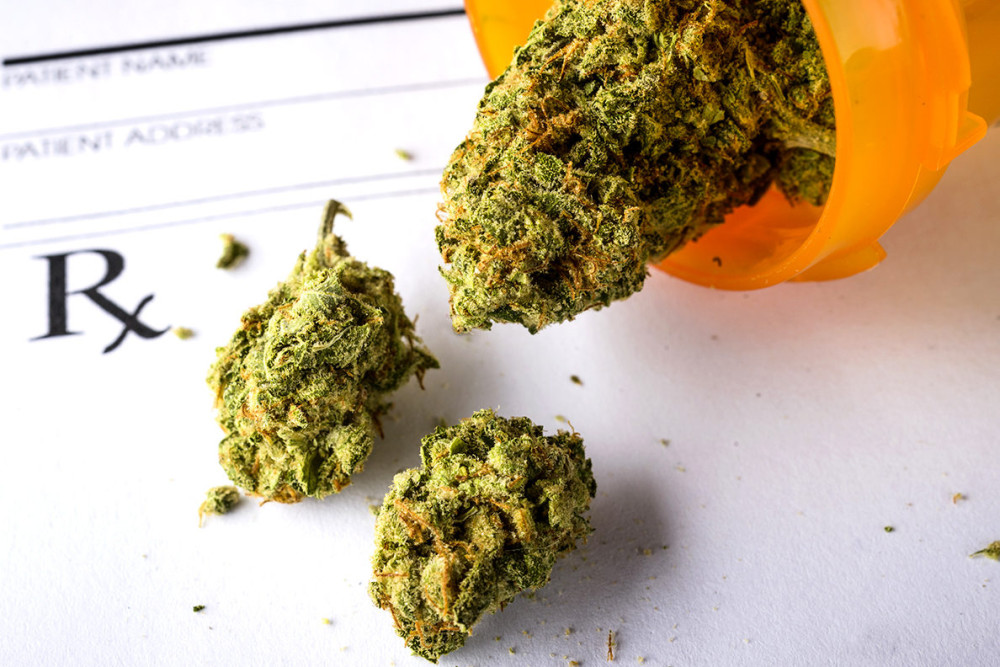Patients face challenges getting accurate information on medical marijuana WSU Nursing study shows
Wednesday, July 24, 2019

Media contact:
Louise Kaplan, Associate Professor, Washington State University College of Nursing Vancouver, kaplanla@wsu.edu, 360-485-6387
SPOKANE, Wash.–Tens of thousands of Washington residents legally use marijuana for medicinal purposes, often guided by consultants who are certified through a 20-hour class and whose knowledge sometimes doesn’t align with state law or research evidence.
Meanwhile, a majority of healthcare providers surveyed say they don’t have the knowledge necessary to recommend appropriate use of medical marijuana to their patients.
The conclusions come from a pair of new studies by faculty at the Washington State University College of Nursing gauging the knowledge, practices and attitudes of medical marijuana consultants and healthcare providers.
Washington is the only state that uses medical marijuana consultants, who before now haven’t been evaluated or studied, said lead investigator Louise Kaplan, associate professor at the WSU College of Nursing in Vancouver. Co-investigators on the study are Associate Professor Tracy Klein, also of the College of Nursing in Vancouver; Associate Professor Janessa Graves and Assistant Professor Marian Wilson, both of the College of Nursing in Spokane. The researchers will present their findings at a symposium of the Research Society on Marijuana in late July.
“While medical marijuana consultants have never been studied, they have a very unique role,” Kaplan said. “We were interested in understanding better how knowledgeable they are and the sources of their information.”
Every marijuana store in Washington that serves medical marijuana patients is required to have a certified consultant available. Consultants must be over 21, know CPR, and have passed a training program. They help patients select products but aren’t allowed to provide medical advice.
A patient who believes they’ll benefit from medical marijuana first must get an authorization from a provider such as a physician, nurse practitioner, physician’s assistant or naturopath. Having an authorization allows someone to buy greater quantities of marijuana at lower prices than they could otherwise. The state has a list of conditions that qualify a patient to get a medical marijuana authorization including cancer, intractable pain and epilepsy. Other conditions, such as depression and anxiety, specifically don’t qualify.
The College of Nursing studies found that certified consultants generally can identify which conditions qualify a patient to use medical marijuana better than health care professionals can. However, about two-thirds incorrectly reported anxiety and depression as qualifying conditions.
Healthcare professionals were less likely than consultants to correctly identify qualifying conditions for medical marijuana, but more likely to correctly identify conditions that don’t qualify. Only 13.6 percent of healthcare professionals who responded to the survey said they’d ever issued a medical marijuana authorization.
The top source of information for consultants on marijuana risks and benefits was their certification training course. A close second was the advice of other marijuana consultants, with websites accounting for about half of their information.
In contrast, healthcare professionals cited other licensed healthcare professionals as their main source of information about the risks and benefits of medical marijuana, followed by continuing education courses and scientific journals.
Most of the healthcare professionals – 84% – believe medical marijuana content should be part of their initial education. A lack of knowledge was the reason cited by more than half of those who don’t provide medical marijuana authorizations, though some said their practice had a policy against it, or they had concerns about medical marijuana.
Of the 13.6% who had issued authorizations, 68% were naturopathic doctors. Six respondents, all naturopaths, had provided more than 500 medical marijuana authorizations to their patients.
Given the small number of non-naturopathic healthcare providers surveyed who authorized marijuana for medical use, “Patients may face barriers to initiating discussions with their health care provider regarding marijuana use,” the study said. “This can be a particular concern for elderly patients, who strongly support the use of medical marijuana for pain relief, appetite loss, and anxiety, but are reluctant to use it without an explicit recommendation from their clinician.”
Data from other research indicates patients may interact with consultants “consistently more than with the healthcare professional who provided the medical marijuana authorization,” the study noted.
Perhaps unsurprisingly, one of the biggest differences between the two groups studied was in their attitudes toward medical marijuana. Among consultants, for example, 28% strongly or somewhat agree that marijuana can be addictive, while 62% of healthcare providers do.
Both studies were sent to a random sampling of each group, but each study noted self-reporting by respondents as a limitation.
Kaplan said the results could nevertheless help guide further development of the consultant’s role, and inform education or continuing education for healthcare professionals.
Funding information: The studies were supported in part by funds provided for medical and biological research by the State of Washington Initiative Measure No. 171 and administered by the WSU Alcohol and Drug Abuse Research Program.
Find this release online at https://news.wsu.edu/2019/07/24/patients-face-challenges-getting-accurate-information-medical-marijuana/